View from the Hill 12th June 2019

The rain over the last week has been very welcome, it has rescued the grass, so the animals have something to eat again, and it has given the spring crops a lifeline. These little characters don’t like it so much though, but they do have a shelter and a lot of bushes to hide in when it’s wet. Eight bottle-fed orphans, fed 4 times per day for a month are quite hard work, we are down to 3 per day now , and there is a lot of noise when anyone walks past their field.
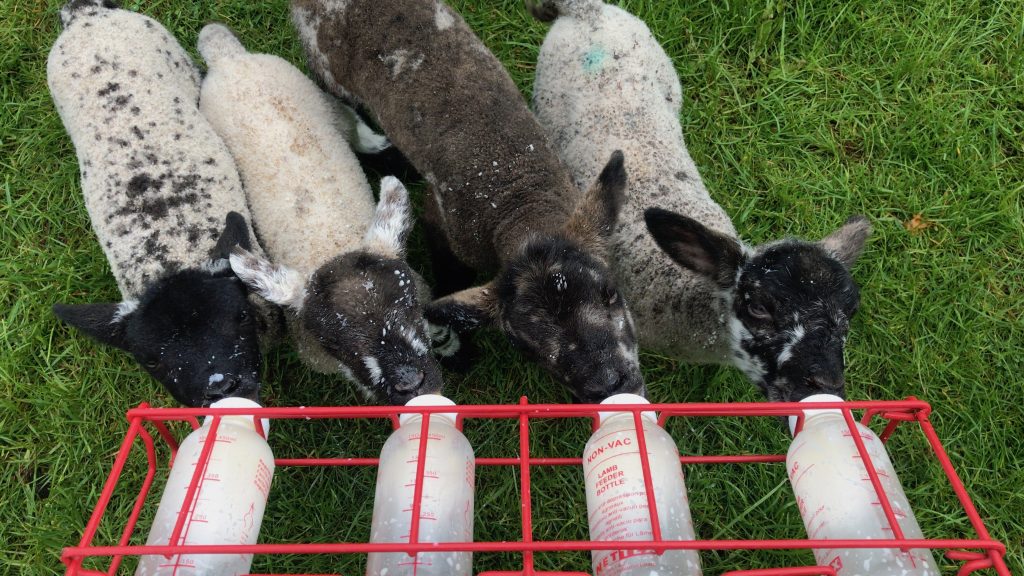
Lambing is now over, and numbers have generally been disappointing out on the hills, too many ewes have needed assistance, so a change in policy is on the cards for next year. The pet flock has done better, they get more attention, and 16 live lambs from 8 ewes is as good as it gets. Along with the 8 orphans, the home paddock is getting a little crowded, so a move will be happening soon. The lambs have been popular with the recent school visits we have hosted, the children have also enjoyed pulling apart ears of wheat and barley looking for the developing grains, oilseed rape pods to find the squashy oily seeds, and wild poppy buds, to unwrap the delicate bright red petals and the breeding parts of the flowers held within. Adults seem to enjoy this delicate operation as well.
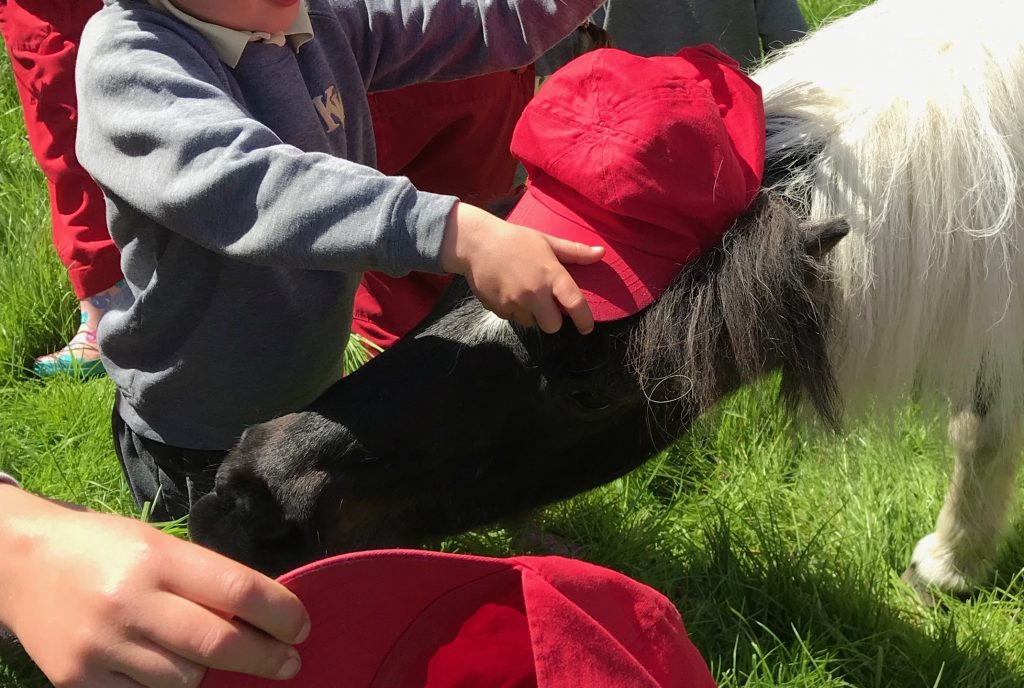
As usual the pony doesn’t like to be left out of the fun.
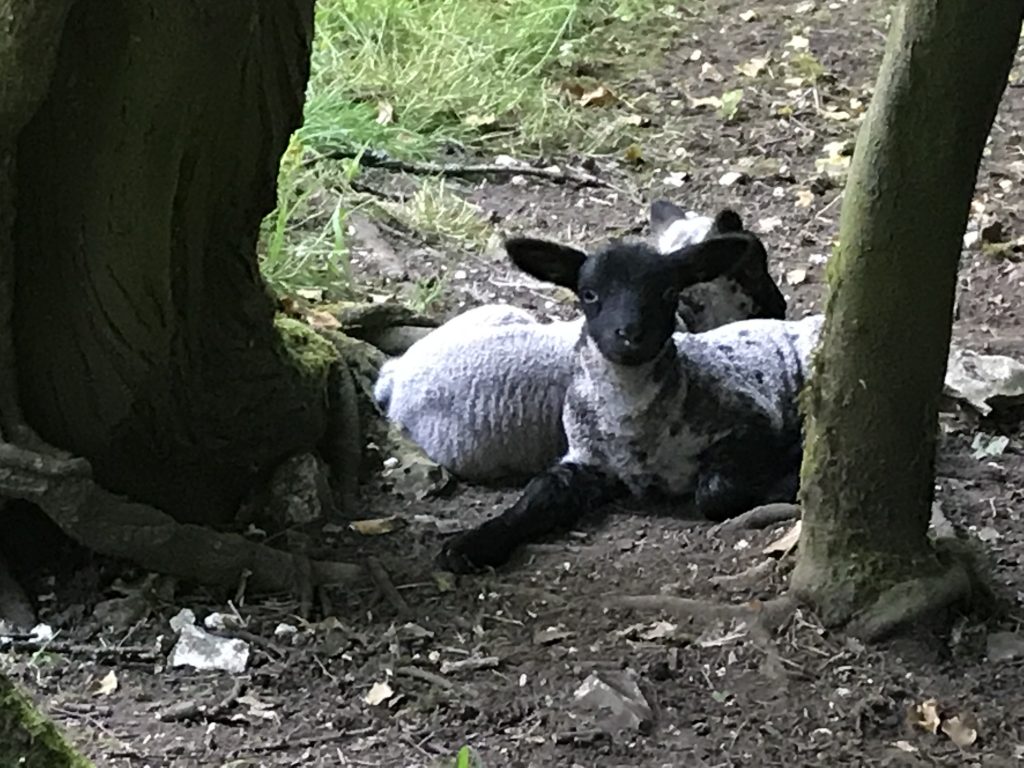
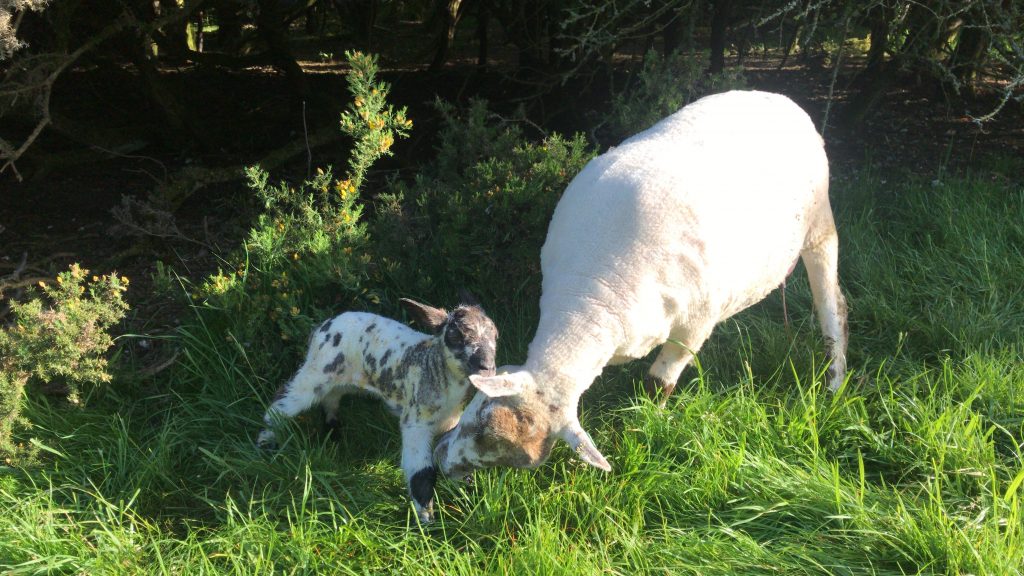
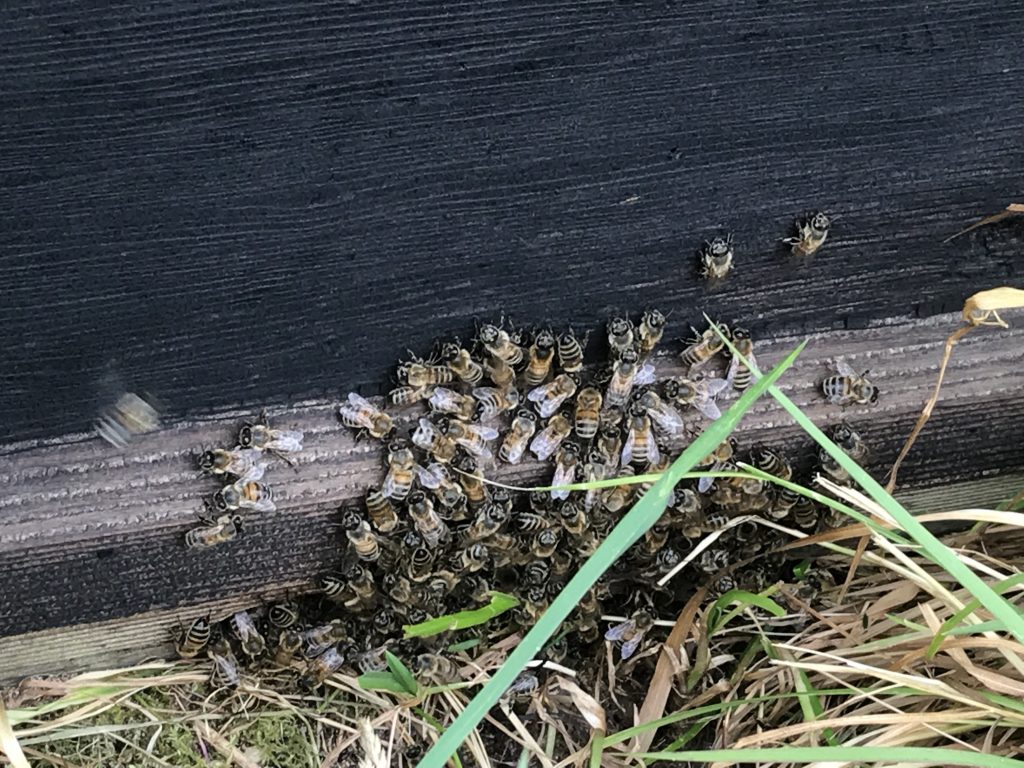
The last few days haven’t been so good for bees, but May was beautiful, here is a hive at 8.00am, busy bees everywhere, the spring flowers have been wonderful, and warm enough to get the nectar flowing, we have lots of hives on the farm at the moment, and also some swarm activity, we had a huge swarm invade the office chimney for a few days till they sorted themselves out. We didn’t get close enough to see if they were honeybees, or wild bees, but the principle is the same, if a colony becomes unhappy, either because of overcrowding or lack of food, they will breed up a new queen, who will then leave, taking her followers with her, to look for a new home. If they are honeybees, and more accessible than a chimney, most beekeepers will be happy to take them away and find them a hive.
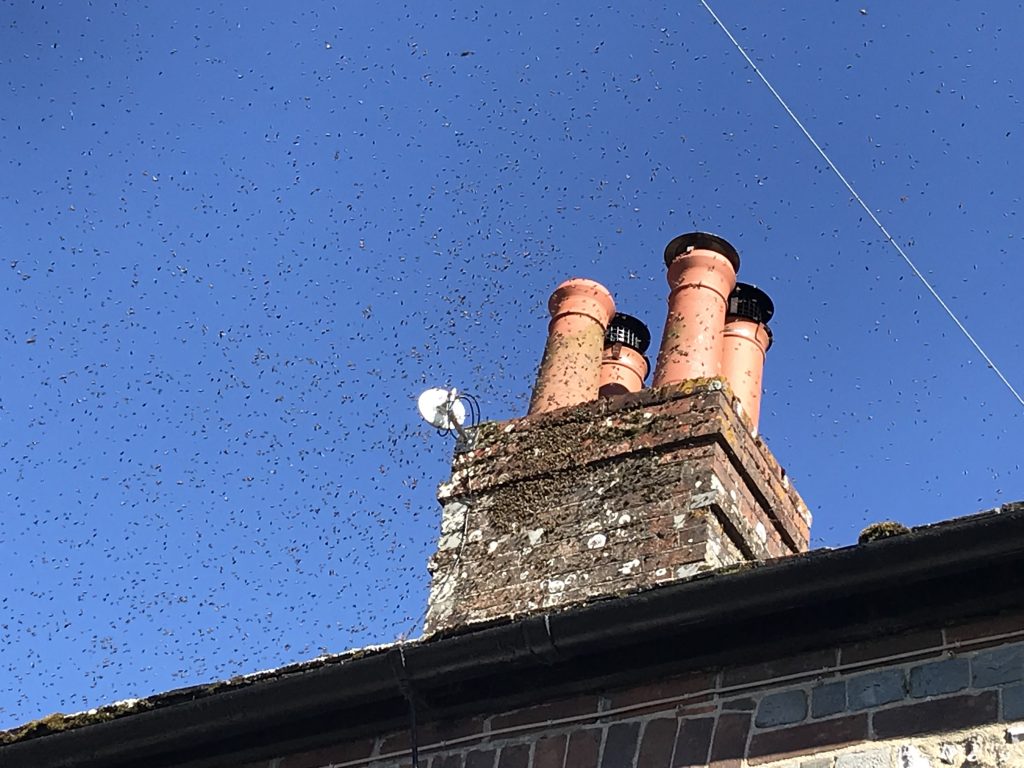
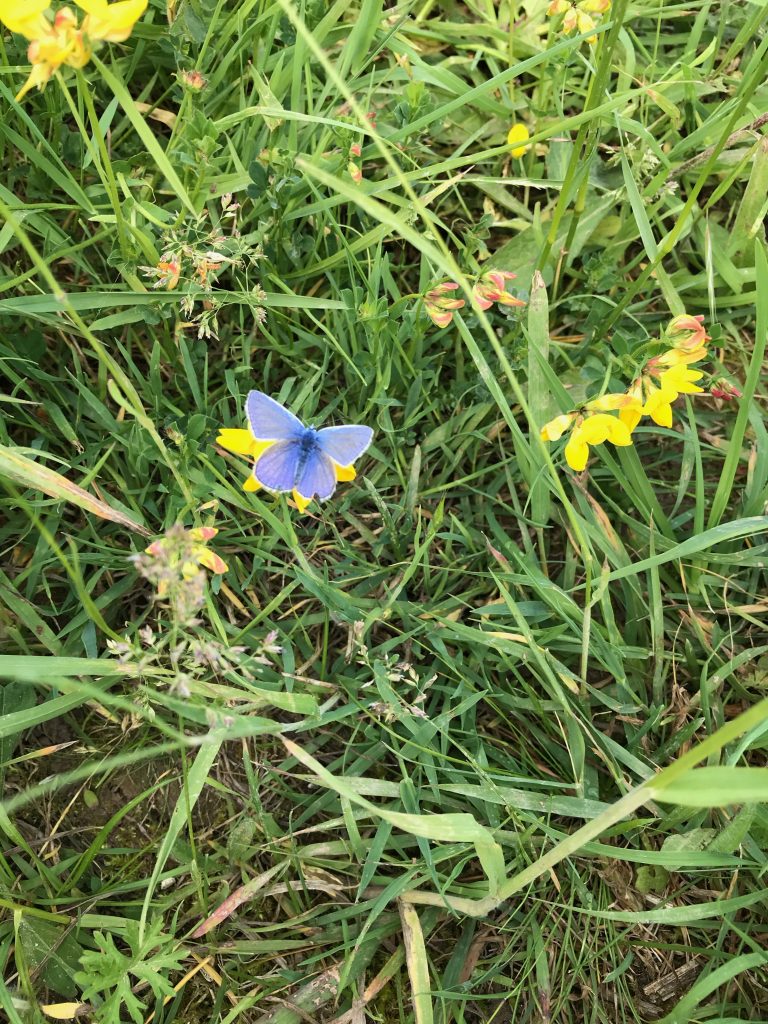
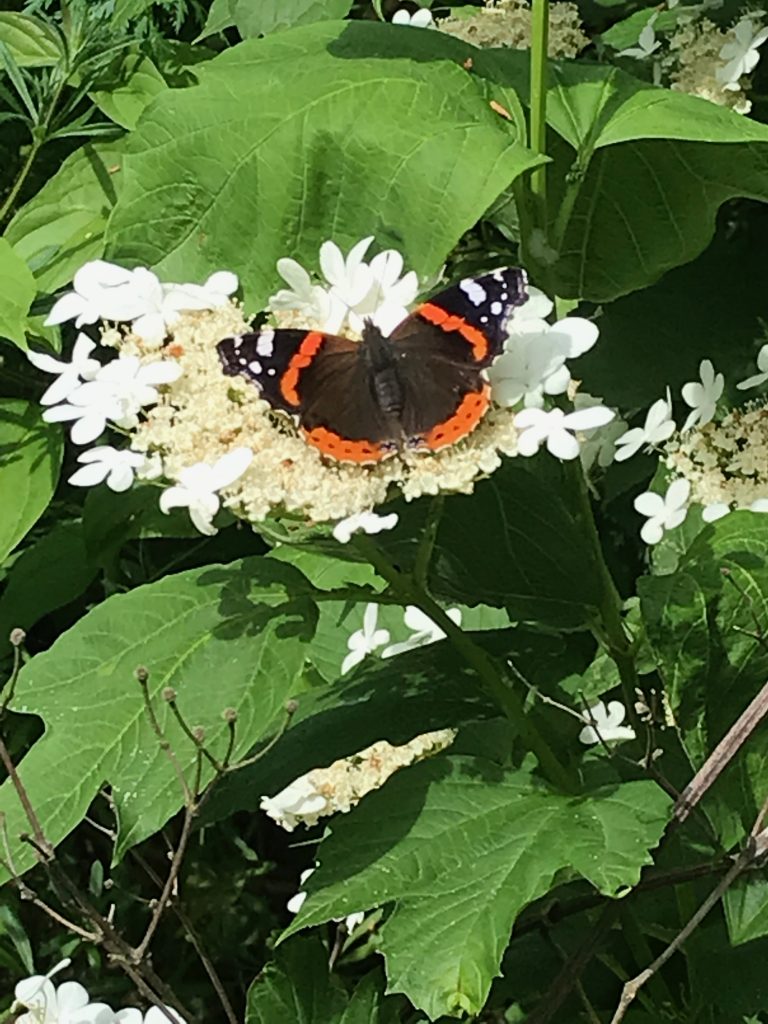
The wildlife margins around our fields are hosting some interesting butterflies, always difficult to capture in a picture, but I found this pretty Common Blue on its preferred food source Bird’s foot Trefoil near Websley, and the handsome Red Admiral was sunning himself on a Guelder Rose (vibernum opulus) in the Jubilee spinney over the road.
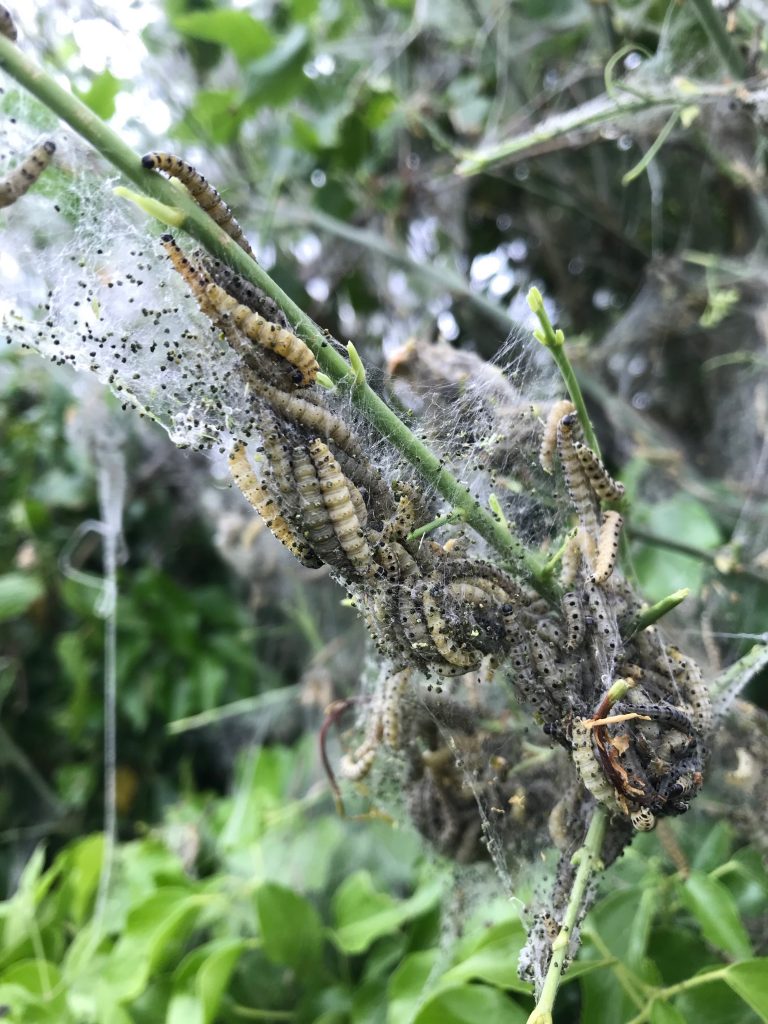
Not so attractive is the spindle moth caterpillar which seems to attack every spindle tree in the hedgerows, noticeable by its cobwebs, it devours every bit of greenery on the poor plants, which very often struggle to recover. I go and attack their webs with a pitchfork sometimes because I can’t bear to see the destruction of such pretty plants, the caterpillars then evacuate swiftly down hastily spun web, like firemen leaving the station for an emergency. I hope they then get eaten by scavenging birds before they have time to weave another cocoon. A close inspection reveals these writhing masses of creepiness.
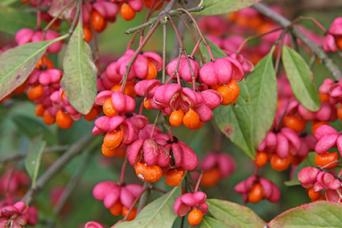
It may help to be reminded what the spindle looks like when it has set fruit in the autumn.
Open Farm Sunday at Myncen Farm Minchinhampton last weekend brought out the crowds. The Meaden family put on a great show, and with the help of fellow farmers and other friends entertained hundreds of visitors with cider making, sheep shearing, machinery displays, country crafts and trailer rides. The weather was kind to most of the open farms in Dorset, though many other farms across the country weren’t quite so lucky. This national event, offering free entry to a vast array of different types of farms has become more and more popular every year, as each farm tries to outbid the others with ever more professional events.
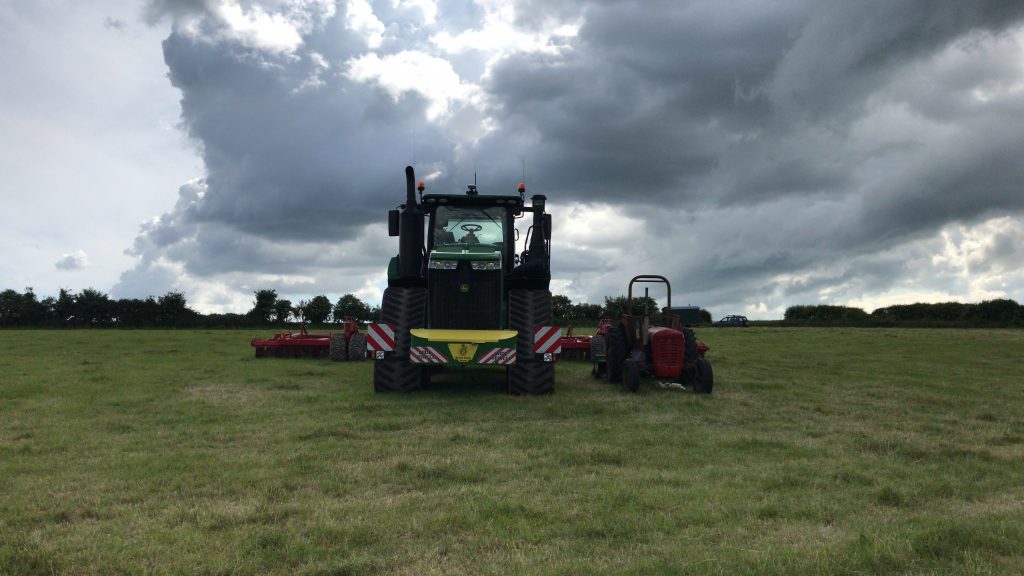
This huge John Deere tractor, the largest in Dorset, sporting a huge 12 metre wide set of discs, dwarfs a little Massey 35, once a very common sight back in the 1960s.
A trip to Sherborne Country fair was interesting on Bank holiday weekend. There was a good display of animals, the sheep area in particular hosted a number of rare breeds, some with funny hairstyles.
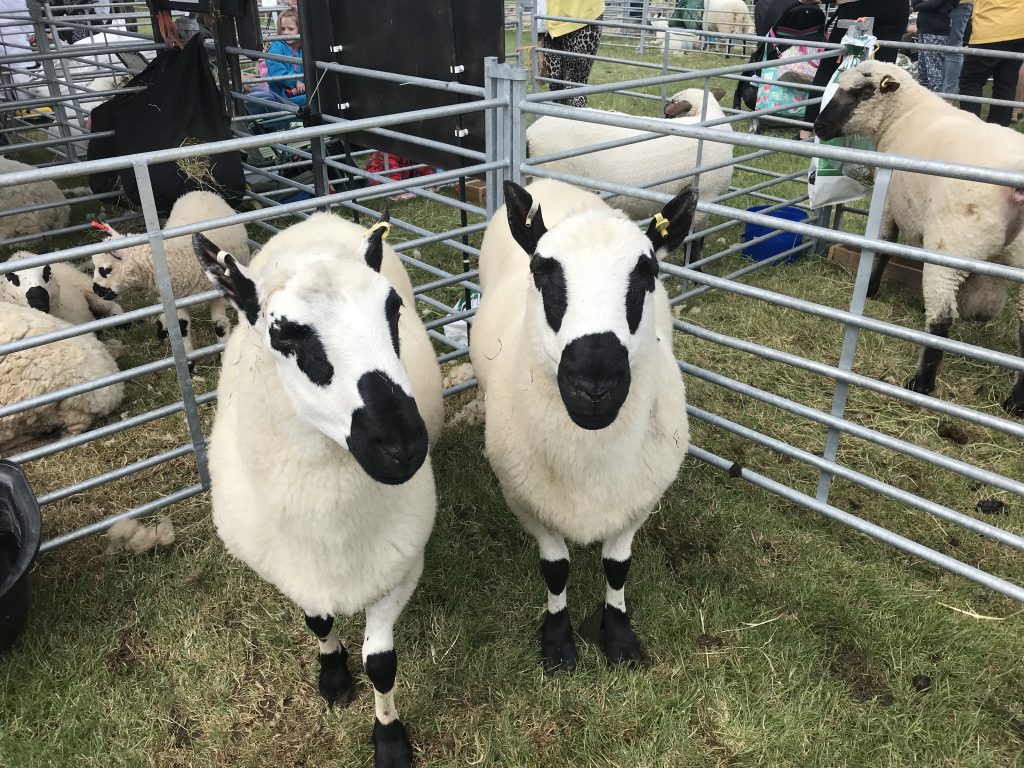
First a pair of handsome Kerry Hill rams
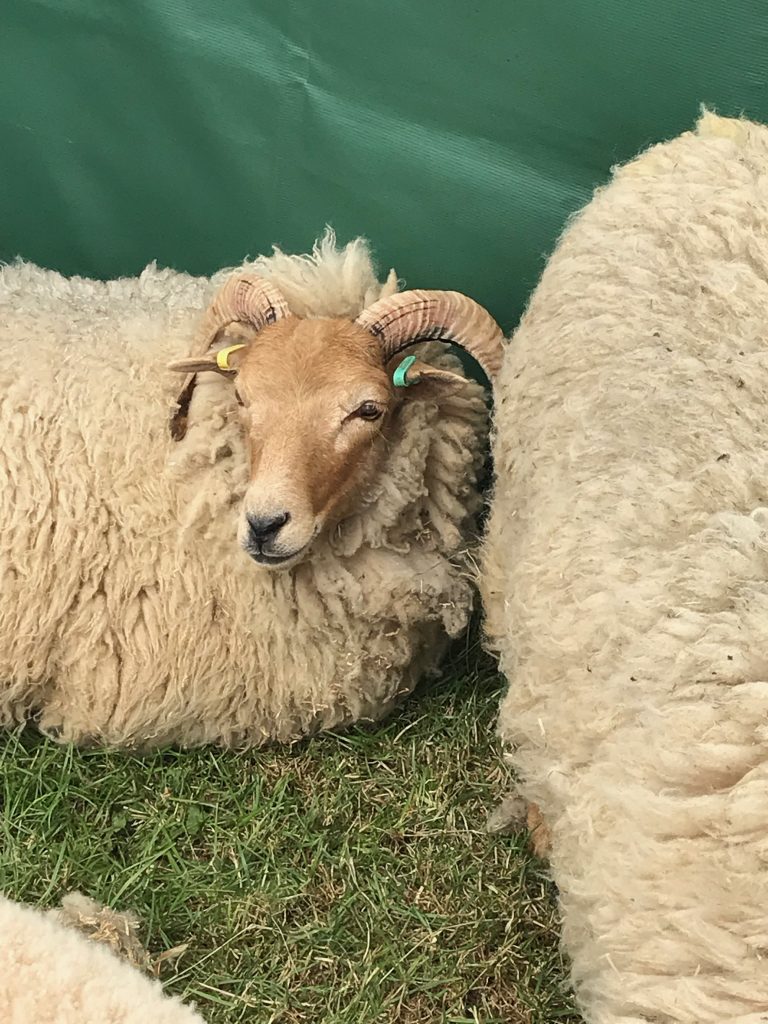
Then a pretty Portland ewe, the Portlands are an ancient breed, bred to withstand the harsh Portland climate, they usually have only one lamb, and the males sport magnificent horns.
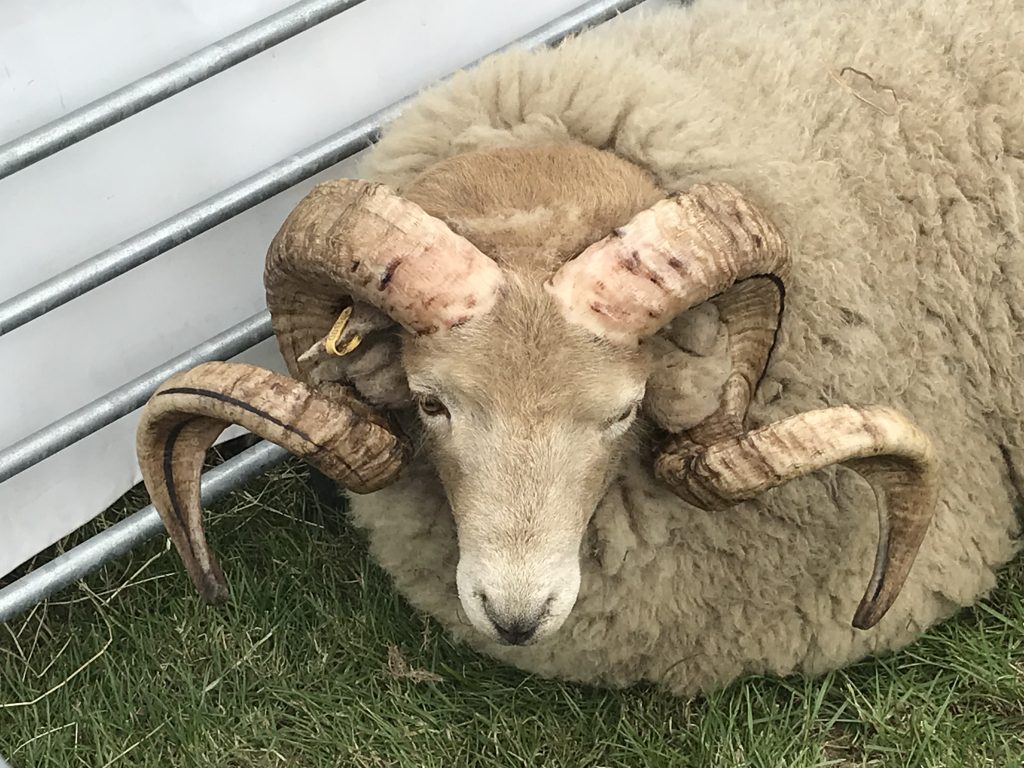
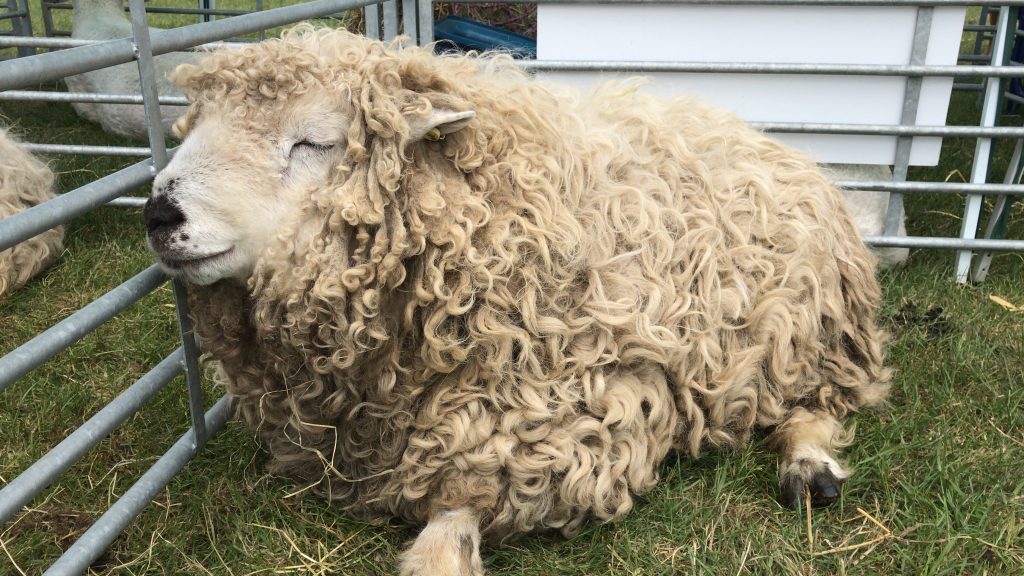
A Dartmoor, lovely ringlets
And finally the comedy turn, I don’t know the breed, and wouldn’t want to embarrass the breeder, or the shearer, whose shears must have broken before they could finish the job properly.
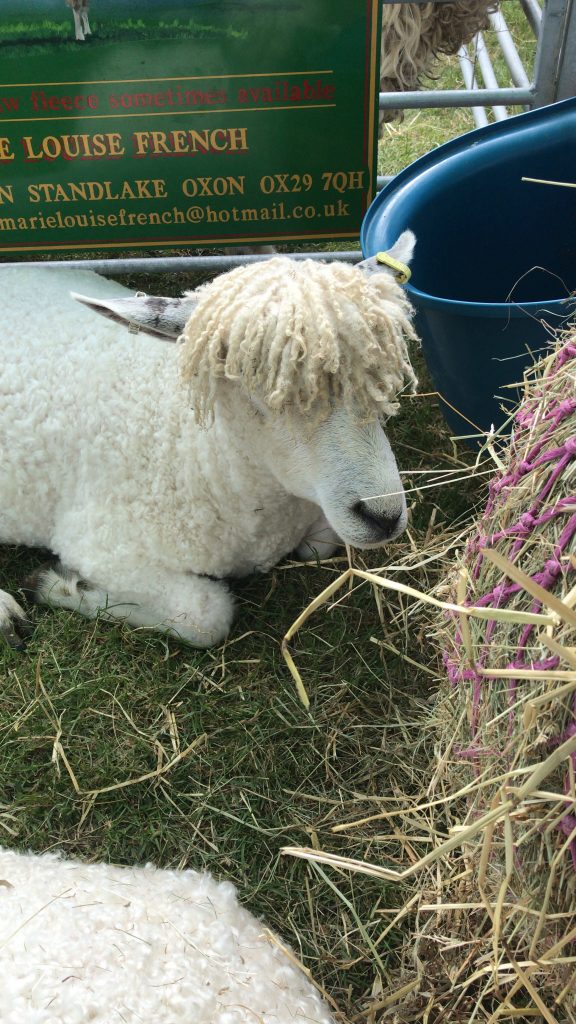
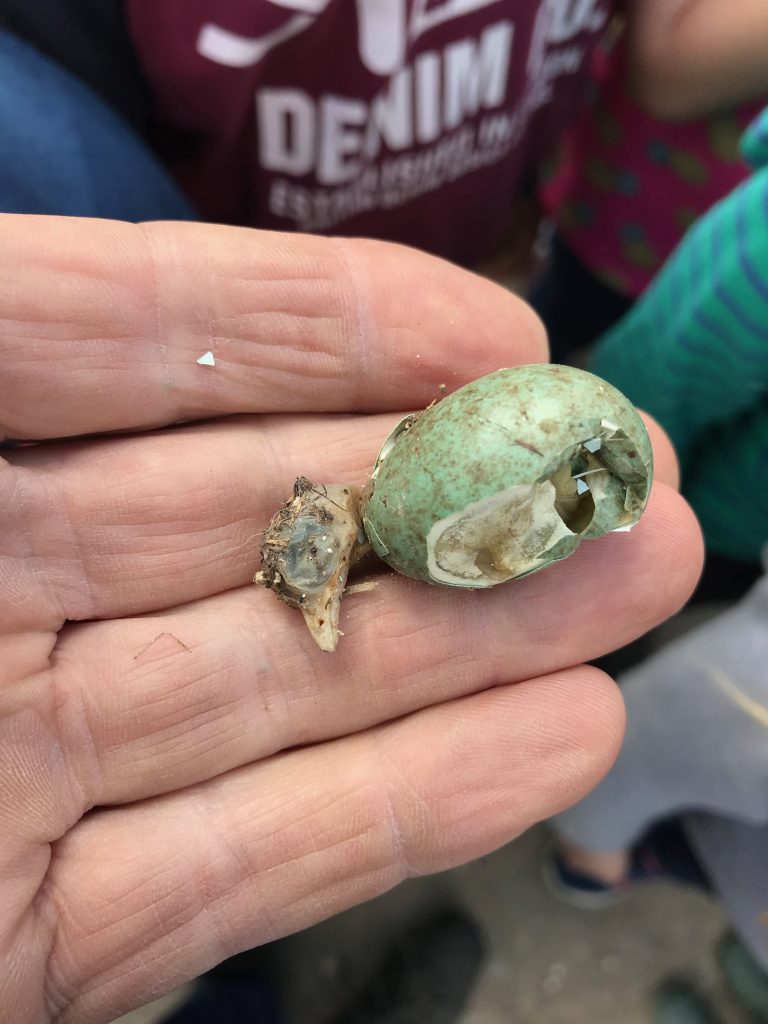
As a follow up to last month’s comments on the fiasco of bird licensing after Chris Packham’s intervention, it was interesting that a child on one our recent school visits spotted this poor unfortunate blackbird chick, which had clearly been predated by a magpie or a crow. What is the point of growing all the bird food that we do, and all the bird feeding that goes on in peoples gardens, if the corvids are allowed to reign freely, uncontrolled? The hedgerow and ground nesting birds have a lot stacked against them, and if we can control the evil corvids then they at least have a bit more chance of survival.
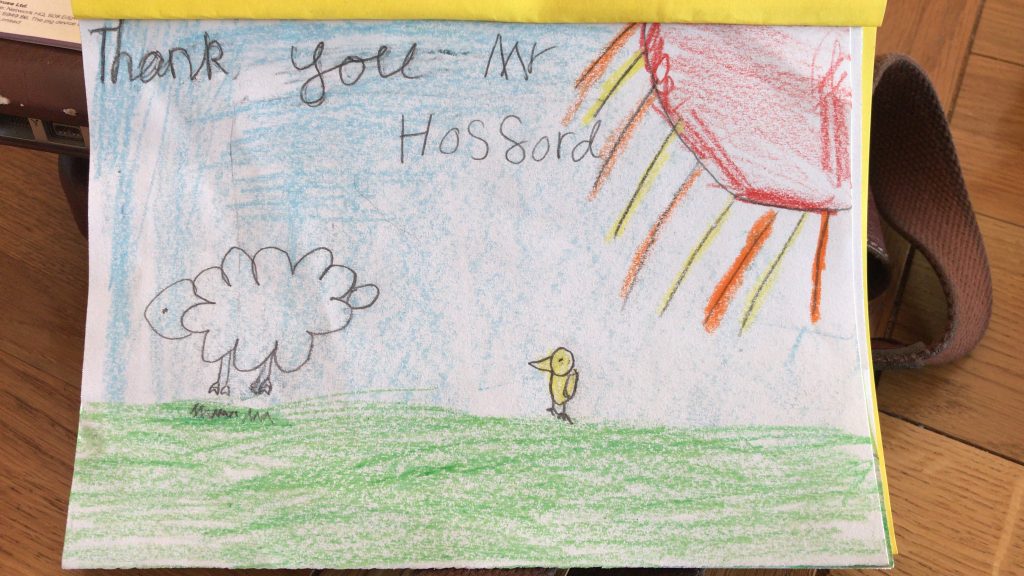

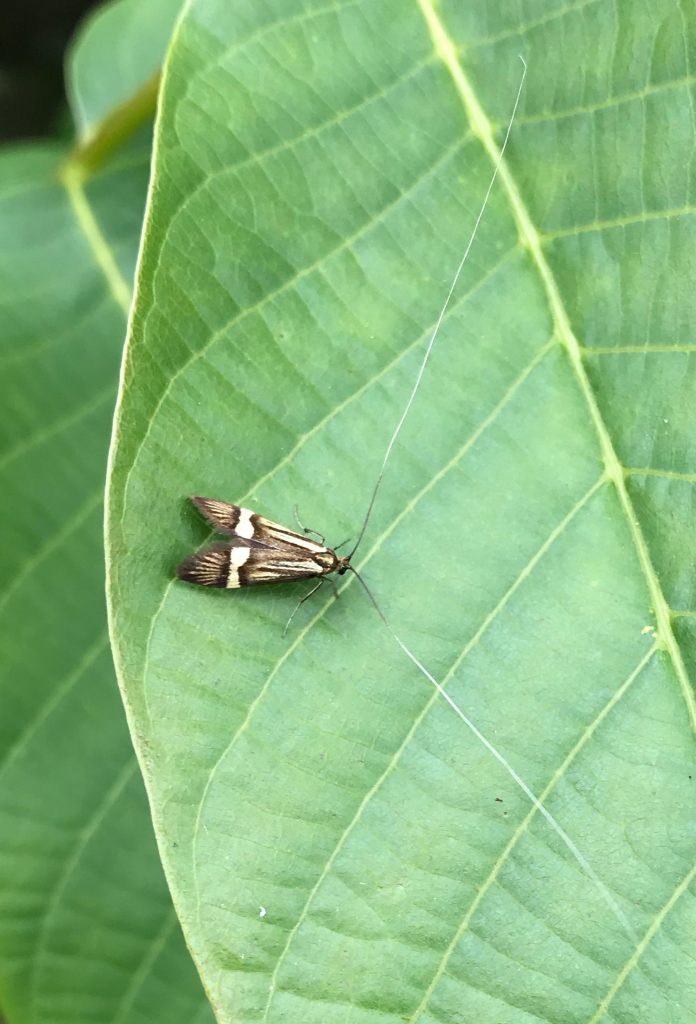
Last month 10 years ago Next month

I get what you are saying about corvids and have no wish to protect them particularly but the extension of the argument that man has to control everything is potentially rather dangerous I would suggest. I like your focus on invertebrates which are so often forgotten. Those birds that the corvids prey on are probably busy munching on the invertebrates we so badly need; often for pollination. If we are going to kill corvids to protect birds why not domestic cats?